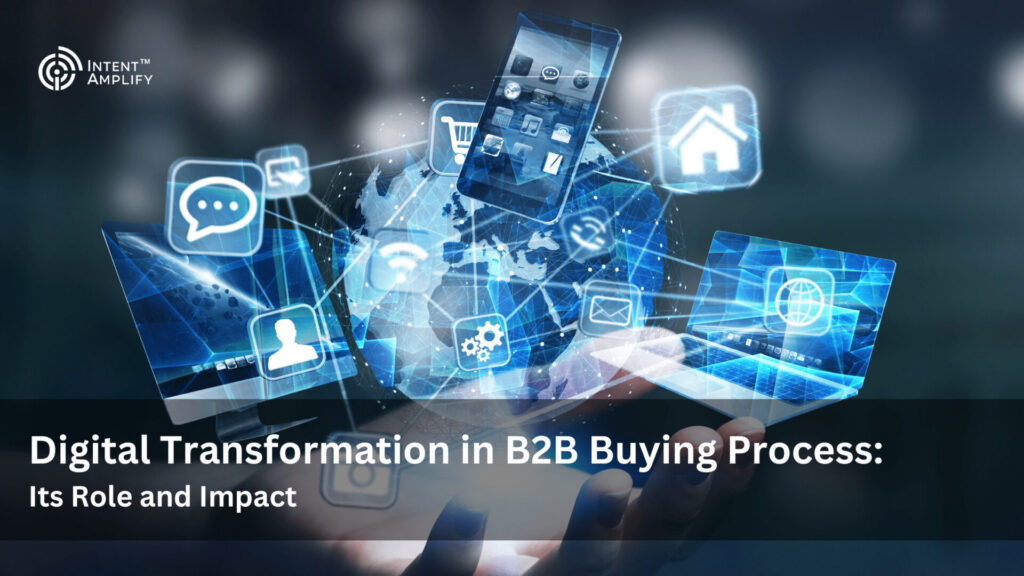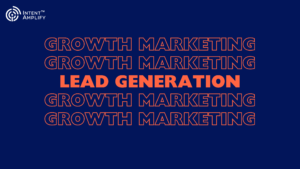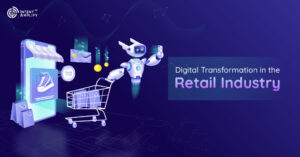
Digital Transformation in B2B Buying Process – Its Role and Impact
Digital dominates our generation, the screen is perhaps the point-of-focus of the entire world today.
With the ease of powerful and fast electronic devices fueled by the internet, every diligent buyer first resorts to Google before making a purchase – whether online or in person. The same culture has crept into the B2B buying process. Decision makers today consider an online presence to be a first step in establishing contact and credibility. With heavy globalization, much buying and selling happens even without actual human communication. This pretty much sets the stage for a digital transformation in the B2B buying process.
Needless to say, B2B transactions do not work on the exact same template as B2C, and the processes are better balanced between digital and physical. Most importantly, B2B sales decisions are typically driven by strategy, unlike B2C. But our post-pandemic generation is on the verge of a major digital transformation, akin to disruption but in a positive sense. More on how a digital transformation can impact a B2B buying behavior in this article.
What is Digital Transformation in the B2B Buying Process?
Digital transformation in the B2B buying process involves the comprehensive integration and utilization of digital technologies to revolutionize and optimize B2B transactions. This transformative process leverages digital tools and online platforms to enhance efficiency, agility, and overall customer experience. It encompasses the shift from traditional, manual methods to digitized and automated solutions, allowing for streamlined communication, personalized interactions, and data-driven decision-making.
Digital transformation in the B2B buying process not only accelerates the pace of transactions but also enables businesses to adapt swiftly to changing market dynamics, anticipate customer needs, and build stronger, more collaborative relationships. It’s a strategic evolution that goes beyond the adoption of individual technologies, encompassing a holistic and innovative approach to redefine how B2B transactions are initiated, conducted, and sustained in the rapidly evolving digital landscape.
Ref: https://www.ibexa.co/resources/insights-and-articles/b2b-digital-transformation
Changing B2B Buyer Expectations In Light Of Digital Transformation
Here are three pivotal ways in which the advent of digital transformation has influenced the expectations of B2B buyers, consequently reshaping the operational dynamics for channel partners.
- B2B customers now demand a streamlined purchasing journey.
The surge in reliance on e-commerce and online transactions means that B2B buyers are increasingly seeking a buying experience akin to that of B2C sales. Given that the B2B buying process involves making new, fully self-serve, or remote purchases, it is prudent for vendors and service providers to pivot their sales approach and replicate the simplicity found in B2C models.
Research indicates that brands that significantly simplify the purchase-decision journey are more likely to be chosen by consumers, and they exhibit a higher likelihood of being repurchased, along with a higher probability of being recommended to others.
In response to this shift, software vendors and service providers aiming to stay ahead should invest in technological tools offering features like omnichannel experiences on the customer side.
The transformative impact of technology extends to tools such as live chat or chatbots, automated subscription or billing management, and digital marketplaces, all of which redefine the customer journey. It’s essential to evaluate whether these tools facilitate the unification of ecosystem operations, enabling channel partners to manage vendors, partners, resellers, and products seamlessly from a centralized platform.
- B2B buyers are inclined towards subscription payment models.
The rapid growth of the subscription model is not surprising, as research indicates that B2B companies increasingly embrace recurring revenue models. Customers prefer making regular, smaller payments over large, infrequent ones, and subscription commerce is hailed as the “key to long-lasting customer relationships.” This preference for consistency and reliability can instill greater peace of mind and trust among buyers involved in the B2B buying process.
Forward-thinking vendors and service providers should adopt subscription billing models for bundled solutions encompassing SaaS, hardware, and professional services. This not only aligns with customer preferences but also enables more accurate revenue forecasting based on recurring revenue from existing clients. Simultaneously, subscription models can enhance Annual Recurring Revenue (ARR) and reduce time to market. Experts recommend combining automation with a comprehensive, integrated, and scalable platform for modern billing. Instead of merely generating invoices, an efficient billing system should act as a partner, capable of “tracking and monitoring every facet of MSP operations and client usage.
- B2B buyers now seek comprehensive solutions.
The era where IT services were provided on a per-need basis, is behind us. Customers no longer request individual software solutions; they prioritize holistic offerings that shape the overall business experience. The demand is escalating as the role of IT service providers shifts from trusted technology advisers to a pivotal strategic business partner.
Managed Service Providers (MSPs) are now tasked with guiding customers through different aspects of the process such as utilizing the cloud versus on-premises data centers for swift SaaS app functionality. Additionally, leveraging edge computing to enable home networks to function as efficiently as headquarters has become imperative.
Understanding that an MSP may not possess all the necessary knowledge or experience to address every issue, it becomes crucial for MSPs to establish a network or ecosystem of other providers—such as software vendors and cloud providers—who can contribute to bundling various app, products, and infrastructure into a comprehensive solution. On the vendor side, identifying ecosystem partners solving problems complementary to your product and fostering relationships with them is imperative.
The Role of Social Media in B2B Buyers’ Decision Making
In a digitally driven B2B buying process, customers let social media influence their buying decisions. Hence, social media emerges as a pivotal tool for B2B companies, providing a valuable opportunity to engage buyers and generate leads. Platforms such as LinkedIn, Twitter, and Facebook empower brands to establish authority, share content, and foster communities.
B2B social media marketing assumes a critical role in lead generation, significantly contributing to brand awareness expansion and effective targeting of the desired audience. Leveraging targeted ads and compelling content, businesses can seamlessly connect with potential customers, thereby generating high-quality leads across diverse social media platforms.
The incorporation of social media into business strategies enables companies to reach a broader audience, establishing connections with individuals who were previously beyond their reach. Through social media ads, businesses can precisely target specific groups and industries, delivering their message at the opportune moment.
Moreover, the utilization of hashtags and collaboration with industry influencers serves to bolster networking, visibility, and brand awareness, thereby amplifying the impact of social media marketing efforts in the context of digital transformation.
B2B E-commerce in the Era of Digital Transformation
Digital Commerce 360 reveals that B2B e-commerce has firmly established its presence. Statista projects that the North American B2B e-commerce market is poised to exceed $4,600 billion by 2025.
The landscape has evolved beyond mere exploration, with McKinsey & Company highlighting that 65% of B2B companies across various industries were fully engaged in online transactions in 2022. Remarkably, B2Bs are now more inclined to prioritize e-commerce over traditional in-person sales.
The driving force behind this shift is clear – e-commerce is a revenue driver.
The Role of Data Analytics in the Digital Transformation in B2B Buying process
The role of data analytics in the digital transformation of the B2B buying process is pivotal and transformative. Data analytics involves the systematic analysis of vast datasets to derive meaningful insights, and within the B2B context, it plays a crucial role in reshaping how businesses approach and execute transactions.
As part of the digital transformation journey, data analytics enables companies to harness valuable information about customer behavior, preferences, and trends. By examining purchase histories, browsing patterns, and engagement metrics, businesses can make informed decisions, personalize interactions, and optimize their product or service offerings.
This data-driven approach not only enhances the efficiency of the B2B buying process but also enables businesses to anticipate market demands, tailor their strategies to customer needs, and foster stronger, more strategic relationships with clients. Ultimately, the integration of data analytics in the B2B buying process underpins a more dynamic, responsive, and customer-centric digital transformation, guiding businesses toward sustained success in the evolving digital landscape.
Digital Transformation is all About Transforming Customer Experience Through Digital Channels in B2B
In the dynamic landscape of B2B interactions, digital transformation has become a catalyst for elevating the overall customer experience. Businesses are leveraging a spectrum of digital tools and platforms to not only meet but exceed customer expectations. Here’s an exploration of how these advancements are reshaping the B2B customer experience:
- Chatbots:
- 24/7 Support: Chatbots provide round-the-clock support, ensuring that B2B customers can access assistance at any time, fostering a responsive and reliable service experience.
- Instant Query Resolution: By swiftly addressing common queries, chatbots enhance efficiency, allowing businesses to provide real-time solutions, thereby minimizing delays and optimizing customer satisfaction.
- Self-Service Portals:
- Empowering Customers: Self-service portals empower B2B customers to take control of their interactions, offering tools and resources for independent problem-solving and transaction management.
- Efficiency and Convenience: These portals streamline processes, enabling users to access critical information, place orders, and track transactions efficiently, contributing to a seamless and convenient experience.
- Personalized Communication:
- Tailored Interactions: Digital transformation allows for the personalization of communication, ensuring that B2B customers receive targeted and relevant information based on their preferences, behaviors, and past interactions.
- Building Relationships: Personalized communication fosters stronger relationships, as businesses can anticipate and meet the unique needs of individual customers, leading to a more meaningful and collaborative partnership.
In summary, the integration of chatbots, self-service portals, and personalized communication within the realm of digital transformation has revolutionized the B2B customer experience. By embracing these features, businesses not only enhance efficiency and convenience but also strengthen relationships with their customers, positioning themselves at the forefront of customer-centric innovation in the digital age.




